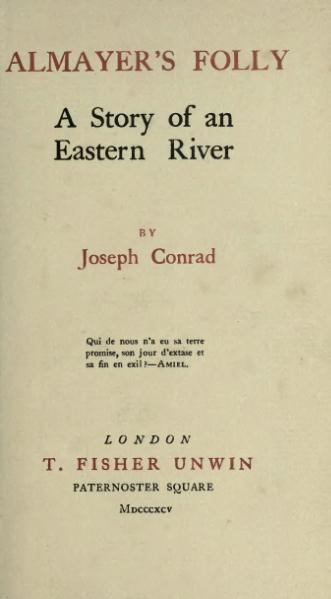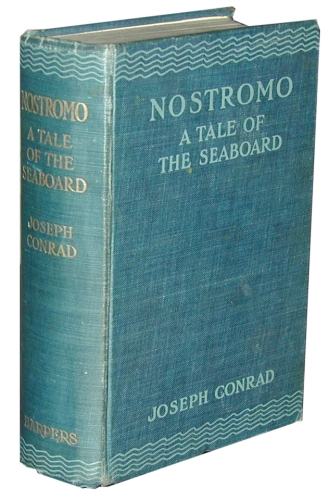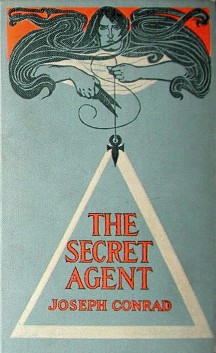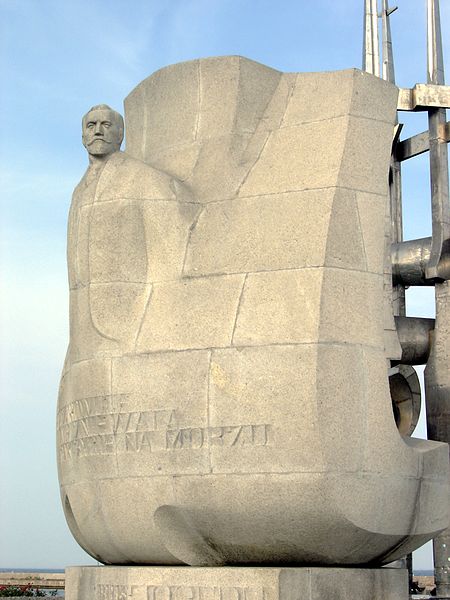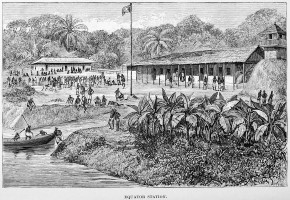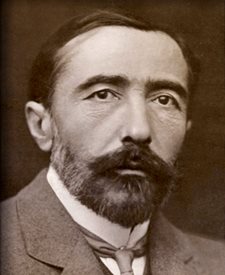
Conrad, Joseph (Józef Teodor Konrad Korzeniowski)
Joseph Conrad was a best-selling and critically renowned British author of the late nineteenth century and early twentieth century, but he began life as Józef Teodor Konrad Korzeniowski in the Ukraine. Conrad’s youth was traumatised by social unrest and revolution. Later in his life, Conrad would produce novels and short stories focused on conflict between individuals, domestic discord and larger political and international problems. The majority of Conrad’s fiction can be considered to originate, in a variety of different ways, from his childhood years. Conrad’s father was involved with clandestine revolutionary action which resulted in his arrest. While his father was in prison, Conrad’s mother wrote letters of support which would eventually lead the couple to be exiled to Northwest Russia. Despite the influence of sympathetic officials and family, both Conrad’s mother and father would die as a result of the punishment. Conrad was left to be cared for by his uncle. Finding himself an orphan at the age of 11 would have a dramatic effect on Conrad. He was not quiet old enough to be able to support himself and act independently. However, he was also fully aware of what had happened to his parents. Ultimately, Conrad’s loss of his parents and lack of immediate family would cause him to leave his homeland in his teenage years and eventually naturalise himself as a British citizen.
Conrad left Poland in 1874 and sought work on French ships and spent most of the next twenty years sailing across the world. Conrad worked on merchant ships that searched for profit in the far reaches of the globe. The working conditions were at times difficult and despite reasonable success, Conrad was unsatisfied and in 1878 attempted to commit suicide by shooting himself in the chest. After spending a couple of months in hospital, Conrad moved to England where he continued his career at sea.
Conrad moved to England despite having no knowledge of the language. He would study hard and not only learnt the language to such a standard that he would eventually write fiction in his adopted language, but also rose to the position of officer. Ultimately, a life at sea was not for Conrad. He spent a short time as captain of one ship before leaving a life at sea for the rest of his life. In 1889, Conrad took a holiday in London and began writing Almayer’s Folly. The novel was not complete until five years later when it was submitted to the publisher Fisher Unwin. The novel was published a year later. Conrad did not receive a great deal of money for his first novel and financial concerns would provide him with considerable anxiety for many years.
In 1896, Conrad married Jessie George. Their relationship was tense and typified by conflict and financial difficulty. Conrad was prone to bouts of manic depression and Jessie would stoically support his outbursts and nurture his depression. The couple had two sons, John and Borys. Conrad achieved some financial stability in 1910 as a result of a civil list pension which provided him with an annual income in recognition of distinguished service to the arts. The stress of writing would take its toll on Conrad and he suffered a nervous breakdown in 1910 after completing Under Western Eyes. Conrad’s period of literary productivity spans 30 years during which he produced 20 novels and wrote extensively for periodicals in England and America. Conrad’s writing was collected in anthologies of essays and short stories and his work marks an important moment of transition between the nineteenth and twentieth century. His work achieves a breath of contemporary concerns that embraces issues of individual identity often in conflict with greater concerned of nationhood or social influences. Conrad was not afraid to experiment with his writing both thematically and stylistically, although many of his narratives and characters are drawn from his own personal experience.
The publication of Chance in 1913 started a change in Conrad’s financial and critical fortunes. He had previously received some measure of critical recognition for his work. After the success of Chance, Conrad previous novels were more widely acknowledged. Conrad was a hard working writer whose life was difficult and full of conflict. It is the struggle and turmoil of Conrad’s life that often arises as a powerful element of his work. After declining a knighthood in 1924, Conrad died of a heart attack and was buried in Canterbury, Kent.




